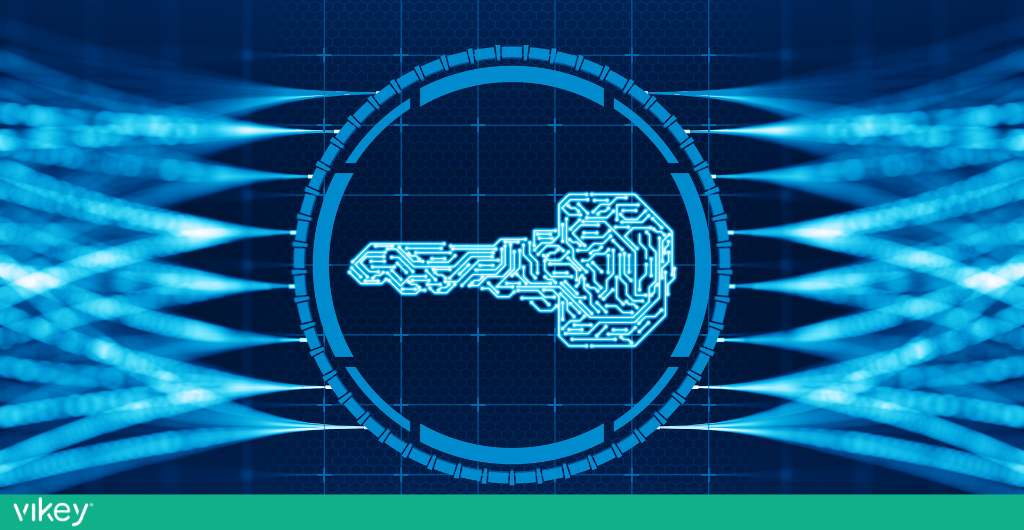Hotel security is an aspect that no hotelier can overlook. In fact, ensuring the protection of both guests and the property should be the priority of every hotel owner or manager.
Specifically, we refer to security systems such as:
- The presence of qualified personnel responsible for surveillance and concierge duties.
- Installation of alarm systems, anti-theft measures, intrusion detection systems, and video surveillance.
- Provision of safes.
However, one crucial aspect of hotel security is access control, which involves protecting against intrusions in common areas and guest rooms, focusing on doors and locks.
With the advent of the Internet of Things (IoT), security in hotel industry is increasingly linked to Smart Locks, which are electronic locks for automatic access to hotel rooms, B&Bs, vacation rentals, and other lodging facilities. These devices integrate hardware and software, allowing for the opening of various types of doors while ensuring security.
Let’s explore how Smart Locks, along with the innovation of completely eliminating key handovers, can prove to be the best choice for hoteliers and guests, offering the highest standards of safety and reliability.
The technology of Smart Locks
Smart Lock technology is becoming increasingly popular in the security in hotel industry because the automation of access can greatly simplify and optimize access management within the property. This provides guests with greater peace of mind and privacy.
Through Smart Locks, smartphones become digital keys capable of unlocking electronic door handles of hotel rooms or apartments with a simple click on the guests’ phones or through the Host app that can also unlock doors remotely.
The Smart Door Lock becomes an essential tool for Self Check-in, a process that guests can independently carry out, allowing hosts to control access history and have the ability to open doors remotely. Here are some features of Vikey Smart Locks:
- Vikey Smart Lock: Replaces the European cylinder, operates with latches, battery-powered (with AAA batteries, a single lock/unlock action can be performed up to 8,000 times, meaning that with ten operations per day, the batteries can last up to a year), compatible with reinforced doors, easy and reversible installation.
- Vikey Smart Lock 2.0: Additionally features motorized lock and unlock with latches, rechargeable, and the lock is not visible from the outside.
- Vikey Smart Handle: Replaces the door handle, operates with latches, battery-powered, compatible with room doors, easy and reversible installation.
- Vikey Electric Strike: Compatible with all locks, doesn’t eliminate the original key, electrifies the door, also compatible with reinforced doors, not visible from the outside.
All Vikey Smart Locks ensure the ability to unlock without internet access and can be opened through the app, which is the main method used. They can also be unlocked using proximity cards or magnetic cards equipped with RFID technology, or through a unique code generated and exclusively associated with each reservation, remaining valid only during the guest’s stay.
Safety and Security of Smart Locks in Hotels Industry
The combination of Smart Locks and security is not just an optional feature for hotels, but it represents a necessary reconsideration. If the budget, technology, and general advantages of smart locks convince us, but the cybersecurity aspect falls short, it is important to abandon the chosen model and consider another one. The selection of a smart lock provider, and especially a digitalized remote opening service capable of managing and utilizing them, becomes a fundamental element in the process of improving the security of one’s property.
The command to open the smart lock sent through mobile devices such as smartphones is covered by anti-theft security measures. In case of theft, the procedure behaves like a remote “cancellation” and “revocation” process, instantly revoking all access rights. There is no need to change the lock itself, as it is sufficient to modify the codes or revoke access, providing clear security advantages due to the speed with which this change can be made.
In addition to the mentioned security benefits, it is important to highlight some functional advantages that arise in scenarios such as theft or loss of “keys.” A smartphone with a dead battery can easily be replaced with a numeric card with a code, a coded keypad, or a coded remote control (in the case of ZigBee or Bluetooth locks). Some locks also allow the use of a mechanical key, enabling traditional access in case of emergencies. This flexibility allows access even for individuals who cannot use smartphones due to legal reasons (such as minors or children) or specific conditions.
When used through a smartphone or a code, the smart lock can be installed from the inside, giving no external observers any sense of automation and without arousing suspicion for potential intruders trying to study a forced entry method.
Among all IoT (Internet of Things) devices dedicated to homes or environments, especially those subject to access permission such as turnstiles, automatic doors, virtual lobbies, concierge services, or virtual receptions, smart locks are considered the most critical link in the chain. They undergo vulnerability assessments and cyber intrusion tests to protect them from unwanted software and physical attacks.
Unfortunately, the literature on the subject and the sensationalism in some media outlets do not help in understanding the continuous testing that these products undergo. Independent security experts and research institutes regularly provide and publish industry studies, certifications, and reliable information regarding the security of computer and access devices. Some main references in the field include AV-Test and Avira.
Question of the week: How secure are smart door locks?
— Avira (@Avira) January 3, 2019
https://t.co/XZ5YU0A6Cj #smarthome #iot pic.twitter.com/PeUdTBYmvC
A test conducted by the independent AV-Test Computer Security in 2017 confirmed that the majority of European Smart Locks provide excellent security, comparable to or even better than most commonly used traditional locks.
Another important security characteristic revolves around the transparency provided by Smart Lock manufacturers regarding their encryption protocols and data transmission, typically implemented through end-to-end encryption as described by each manufacturer. Smart Locks also do not change the security level of the underlying locks. This means that they do not make the doors “easier” or “more difficult” to damage or break into.
Are smart locks secure? AV-TEST has the answer https://t.co/uJSRiruf0G pic.twitter.com/eWe84Wxayx
— TechRepublic (@TechRepublic) December 11, 2017
Hotel Room Security Smart Locks Advantages
Smart locks for hotel room security offer numerous advantages, particularly when it comes to security. One key benefit is their convenience: they eliminate the need for physical room keys, reducing the chances of guests forgetting or misplacing them. Instead, guests can use their smartphones to open the doors, allowing hotel owners to monitor access remotely.
The security standards of smart locks ensure that only authorized and pre-selected users have exclusive access, minimizing the risk of tampering with the electronic system. Another notable feature is the ability to grant access to specific areas. This is particularly useful for establishments that need to provide temporary access to certain guests while restricting entry to other areas.
Depending on the model, smart locks can be managed remotely via the internet or mobile apps. In the absence of a connection, a dead battery, or in case of a lost phone, it is still possible to open the lock using a conventional key. However, it is important that the profile cylinder has an emergency or danger function. Since the key always remains inside the lock after installation, positioned beneath the activation system, the locking cylinder must still be operable from the outside, even with the key inserted.
In addition to low maintenance requirements, these intelligent devices are equipped with advanced security features that make them resistant to attacks and vandalism. They offer ease of use, reliability, and flexibility, as they can be adapted to various types of doors, including reinforced ones.
With affordable costs and practical functionality, smart locks are a valuable opportunity for any hospitality establishment.

